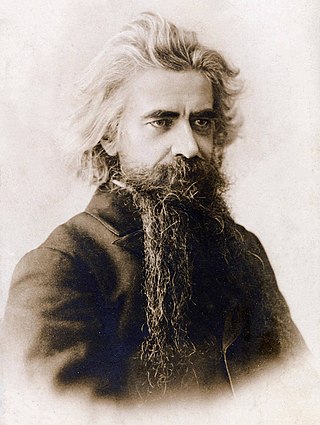
Vladimir Sergeyevich Solovyov was a Russian philosopher, theologian, poet, pamphleteer, and literary critic, who played a significant role in the development of Russian philosophy and poetry at the end of the 19th century and in the spiritual renaissance of the early 20th century.

Grand Duchess Maria Vladimirovna of Russia has been a claimant to the headship of the House of Romanov, the Imperial Family of Russia since 1992. She is a great-great-granddaughter in the male line of Emperor Alexander II of Russia. Although she has used Grand Duchess of Russia as her title of pretence with the style Imperial Highness throughout her life, her right to do so is disputed. Since her father's death on April 21, 1992, some of her monarchist supporters have referred to her as Maria I, titular "Empress of Russia", a title she does not claim herself.

Paul Walden was a Russian, Latvian and German chemist known for his work in stereochemistry and history of chemistry. In particular, he discovered the Walden rule, he invented the stereochemical reaction known as Walden inversion and synthesized the first room-temperature ionic liquid, ethylammonium nitrate.
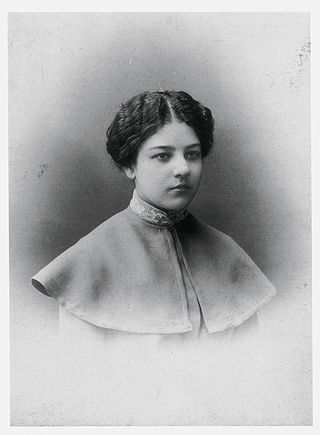
Olga Vladimirovna Rozanova was a Russian avant-garde artist painting in the styles of Suprematism, Neo-Primitivism, and Cubo-Futurism.

Ariadna Vladimirovna Tyrkova-Williams was a liberal politician, journalist, writer and feminist in Russia during the revolutionary period until 1920. Afterwards, she lived as a writer in Britain (1920–1951) and the United States (1951–1962).

Grand Duchess Anna Petrovna of Russia was the eldest daughter of Emperor Peter I of Russia and his wife Empress Catherine I. Her younger sister, Empress Elizabeth, ruled between 1741 and 1762. While a potential heir in the reign of her nephew Peter II, she never acceded to the throne due to political reasons. However, her son Peter III became Emperor in 1762, succeeding Elizabeth. She was the Duchess Consort of Holstein-Gottorp by marriage. She was born in Moscow and died in Kiel in her youth, at the age of 20.

Semyon Lyudvigovich Frank was a Russian philosopher. Born into a Jewish family, he became an Orthodox Christian in 1912. In 1922 he was expelled from Soviet Russia and lived in Berlin. In 1933 he was replaced as head of the Russian Scientific Institute. In 1945, he moved to Britain.

Tatyana Apraksina is an artist and writer who also produces the magazine Apraksin Blues.
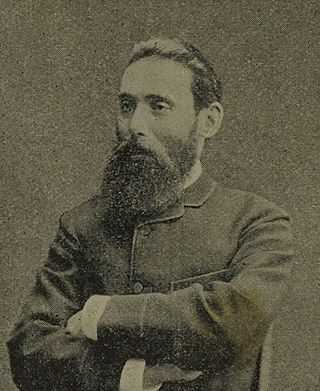
Osip Notovich was a Russian Empire author, journalist, and publisher. He was born into a Jewish family in the city of Taganrog, studied at the Taganrog Boys' Gymnasium, and graduated from the law faculty of the Saint Petersburg University. In 1873-1874, he was the publisher and editor of the newspaper Novoe Vremya. In 1876 he acquired the newspaper Novosti, which he transformed into a political tribune.

Teodor Ilyich Oizerman was a Soviet and Russian philosopher and academician.
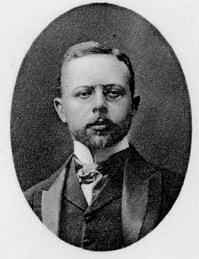
Baron Mikhail Alexandrovich Taube was a famous Russian international lawyer, statesman and legal historian. Being a Catholic converted from Russian Orthodoxy, Taube came from an old Swedish-German family von Taube, known from the 13th century, one of the branches of Baltic Germans in the service of the Russian throne.
Tatiana Vladimirovna Gorb was a Soviet Russian painter, graphic artist, art teacher and illustrator, who lived and worked in Saint Petersburg. Gorb was a member of the Saint Petersburg Union of Artists and is regarded as one of the representatives of the Leningrad school of painting. She is most famous for her portraits.
Maria Vladimirovna Nikolaeva, also well known as Atma Ananda, Shanti Nathini, Dolma Jangkhu, Made Sri Nadi is a prolific modern writer, philosophy master, and spiritual teacher. She is the author of 37 books printed in total run of 115 000 copies in Russian, translated into 6 foreign languages, and available worldwide via Amazon.com. Maria V. Nikolaeva is the member of 'International Writes Union', the 'Translators Union of Russia', the fellow of academic 'Association for Study of Esoterics and Mysticism', and the honorable member of St. Petersburg Yoga School. She has lived and worked 12 years in 10 Asian countries, plus 1 year in 10 European countries.

Maria Mikhailovna Shkapskaya was a Russian/Soviet poet and journalist. She was a member of the Petrograd Poets Union.
Vladimir Semionovich Spirin was a Russian philologist, sinologist, historian, primarily interested resided in classical Chinese philology and Chinese philosophy. Throughout his career he was a lecturer of Saint Petersburg State University, researcher at Saint Petersburg's branch of the Institute of Oriental Studies of the Russian Academy of Sciences, Saint Petersburg Russia, Candidate of Sciences.

Katerina Vladimirovna Tikhonova is a Russian scientist, manager, and former acrobatic dancer. She is the second daughter of Russian president Vladimir Putin.
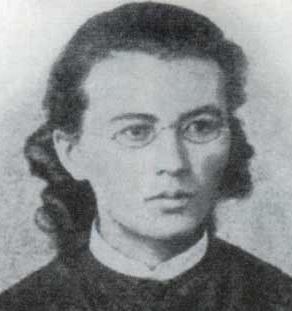
Anna Nikolayevna Engelhardt was a Russian women's activist, writer, translator, and the compiler of the Complete German-Russian Dictionary. Having been educated at one of the few schools offering education to women, she began working in a book store and then helped found the first women's publishing cooperative in Russia. Concerned with women's issues and their ability to support themselves, after her husband was banished from Saint Petersburg, Engelhardt became involved in the women's movement and helped establish the Bestuzhev Courses for women's higher education, as well as co-founding the Women's Institute of Medicine.
Maria Alexsandrovna Sechenova was the first female ophthalmologist surgeon from the Russian Empire. She was one of the first women to receive an education from a foreign university and one of the first female doctors in Russia.

The Smolny Institute of Noble Maidens of Saint Petersburg was the first women's educational institution in Russia that laid the foundation for women's education in the country. It was Europe's first public educational institution for girls.

The Higher Courses for Women in Moscow was a university for women between 1872 and 1918, after which they were transformed into the 2nd Moscow State University. It was one of the largest and most prominent women's higher education institutions in the Russian Empire, second only to the Bestuzhev Courses in Saint Petersburg. It was founded and administered by Vladimir I. Guerrier.
















